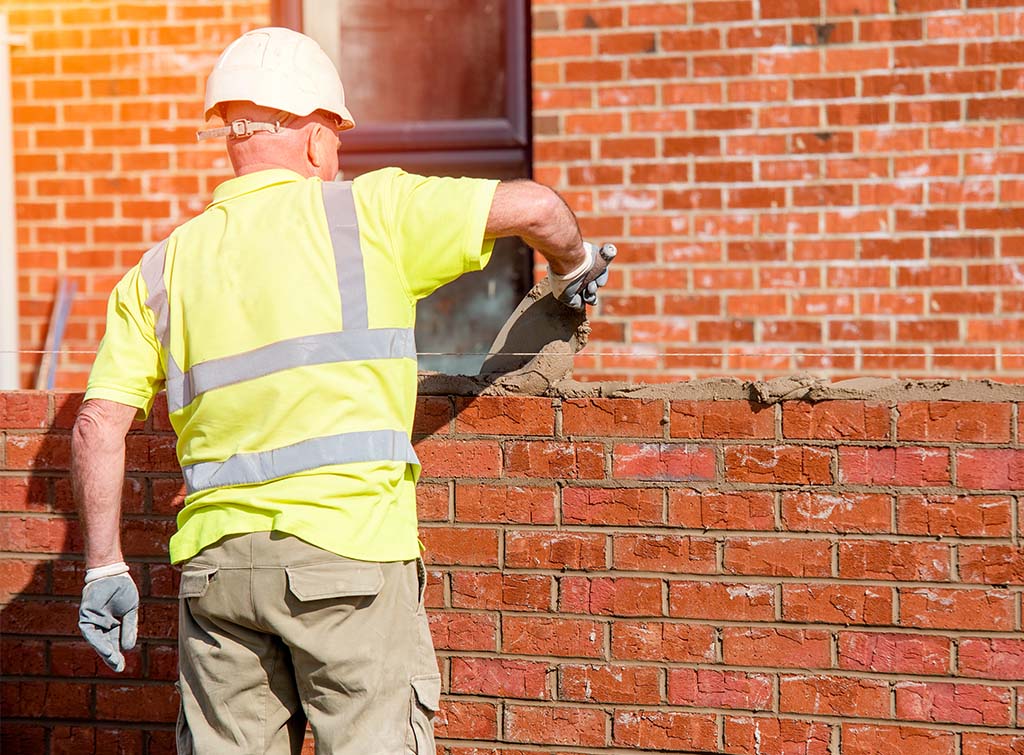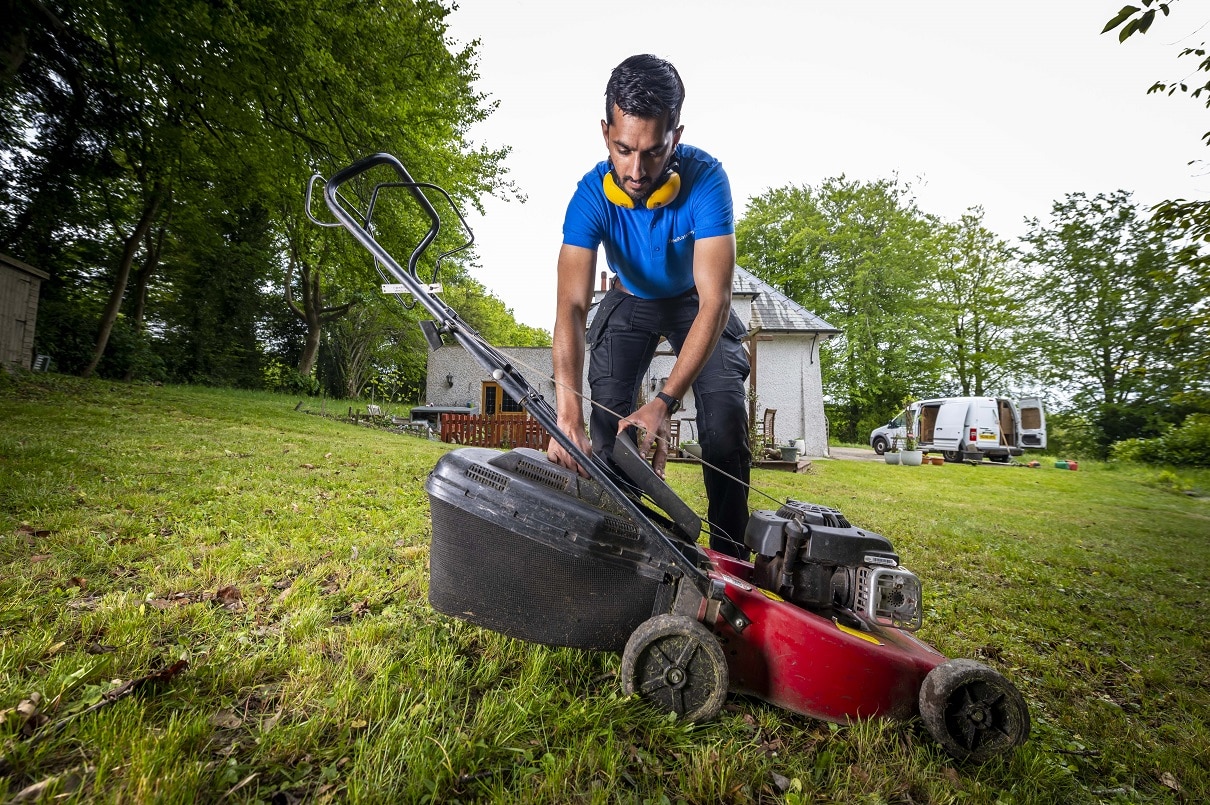Blog>Trade>Starting a Business>How to become a bricklayer
Last updated: 3 January 2025
How to become a bricklayer
A vital job for many trade areas, bricklaying can pay very well. However, it’s also a very skilled role that requires the right training to be successful. Read on to learn more about how to become a bricklayer.

Why should you become a bricklayer?
No matter what trade industry you work in, you probably know just how essential bricklayers are for construction. After all, without them, nothing of quality would ever get built.
As a result, bricklayers are well-respected for their trade and skills – and bricklaying is certainly a skilful job. One that can also pay very well with the right experience and specialisation.
So, if that’s caught your interest, keep reading to learn more about how to become a bricklayer. Including:
What is involved in the profession
What bricklaying skills you’ll need
Necessary bricklayer qualifications
Important skills to have
Methods to get training and experience
With over 224,000 searches for bricklaying work via Checkatrade in 2024 alone,* there are many reasons bricklaying may be a good fit for you.
What is the difference between a bricklayer and a builder?
Before we go any further, it’s worth touching on how exactly a bricklayer differs from a builder. While there are certainly similarities between these two roles, there is one core difference.
Bricklayer is a specialist role for creating or repairing brick-based structures
Builder is more of a generalist working with other materials and responsibilities
Think of builders as the broader discipline, while a bricklayer is the elite specialist you call in for specific jobs on a project.
How to get more bricklaying job leads
Keep your business busy with more bricklaying job leads If you've just become a bricklayer. Or you're already working as part of a construction team. It's no surprise that you'll want your business to be found by more people, and as a result, get more work. To avoid nasty surprises in your diary
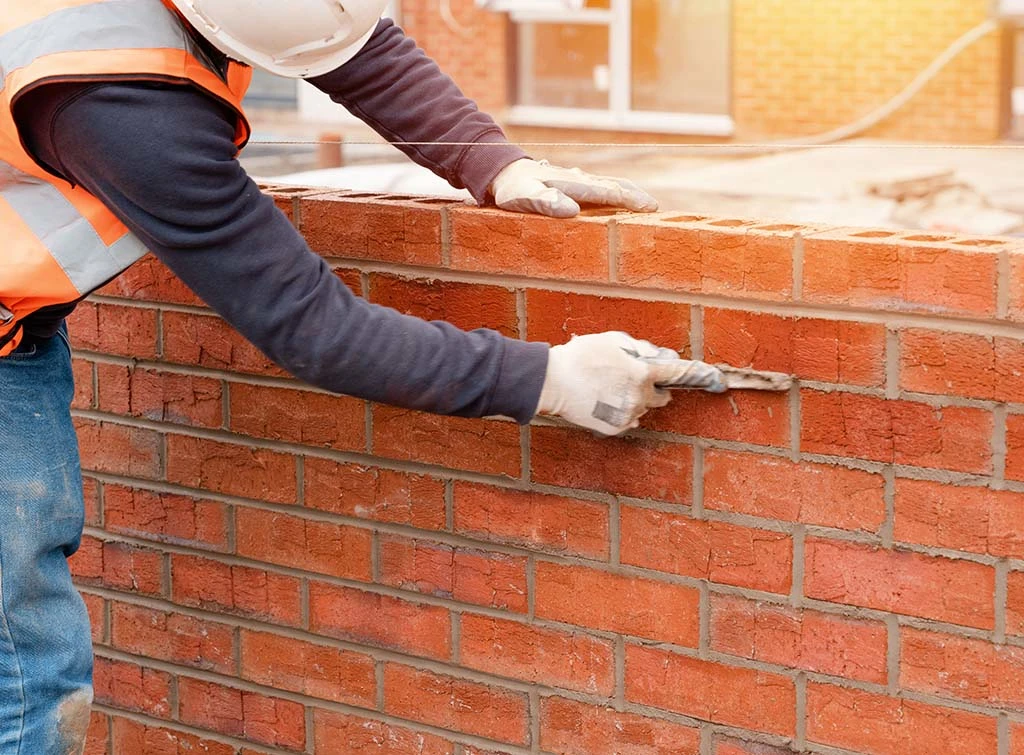
What does a bricklayer do?
As the name suggests, bricklayers do indeed lay bricks as the main part of their job.
However, there is far more to the role than simply putting blocks in a line. In fact, any good bricklayer job description will show just how diverse and challenging bricklaying can be.
Things that you could be working on include:
Restoration projects
Heritage buildings
Commercial projects
Domestic properties
Small construction jobs
Repairs and maintenance
With such a diverse role, bricklaying is a truly specialist role. One that can see you working or constructing all manner of buildings throughout your career.
Grow in your profession with Checkatrade
Find more bricklaying jobs as one of our members
What does bricklaying involve from day to day?
Now that we’ve looked at why bricklayers are important, what exactly do they do from day to day?
Well, for anyone looking to train to be a bricklayer, you’re typical workday could involve any of the following tasks:
Examining and understanding work plans in order to carry out a construction project
Measuring a work area and marking out the space in order to lay foundations
Laying bricks and/or other similarly hard materials used in structural buildings
Mixing mortar to seal bricks in place
Competently using various bricklaying tools to complete a given job to a high standard
Sealing foundations against adverse weather conditions
Shaping and trimming bricks with various tools to fit a project’s needs
Checking brick rows are level for an even construction
Assisting in the building of homes and commercial spaces
Repairing damaged walls and other brick structures
Refurbishing stonework and carrying out other kinds of restoration work
As you can see, if you want to become a bricklayer, you will be doing a lot more than simply putting bricks in a line.
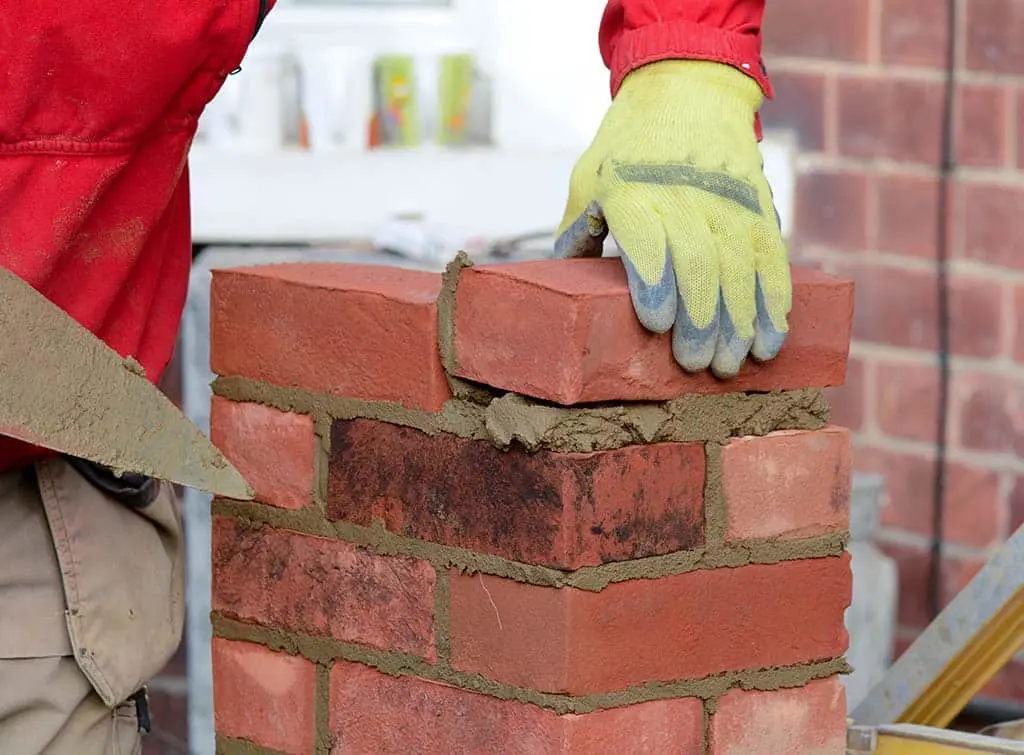
What bricklaying skills do you need?
Those looking to become a bricklayer will need various bricklaying skills. We recommend cultivating some (or all) of the following if you’re seeking work in this role:
An entry-level knowledge of the building and construction industry
Attention to detail
Thoroughness in their work
Teamwork skills
Working flexibility
Patience and calm
Physical fitness, balance, and coordination
Organisational skills
Computer skills
Working on even just a few of these skills will make your journey to become a bricklayer that much easier.
Grow in your profession with Checkatrade
Find more bricklaying jobs as one of our members
How to train to be a bricklayer
For those who want to train to be a bricklayer, you have two options:
Taking an apprenticeship
Completing a college course.
Either of these will give you the knowledge you need to succeed in the role, so, your choice should come down to personal preference.
If you want to earn while you learn hands-on experience, then you should choose an apprenticeship. These take at least a year to complete, but can set you up with a job straight after qualifying.
What bricklayer qualifications do you need?
If you choose to learn bricklaying through college, then you should opt for any of the following courses:
A Level 1 Certificate in Construction Skills
A Level 2 Diploma in Bricklaying
A Level 2 Diploma in Trowel Occupations
A T Level in On-Site Construction
Alternatively, if you seek out an apprenticeship, you should look for either of the following:
Bricklaying Level 2 Intermediate Apprenticeship
Craft Bricklaying Level 3 Advanced Apprenticeship
Regardless of which path you choose to train to be a bricklayer, both will provide you with essential qualifications.
Do you need qualifications to become a bricklayer?
No, it is not a legal requirement to have qualifications for bricklaying. However, given the specialist nature of the job, it’s always a good idea to seek certification.
Simply put, it will potentially be harder to find work without any qualifications.
Potential customers and employers are more likely to favour someone who has the right accreditation. It is one of the key ways to build trust.
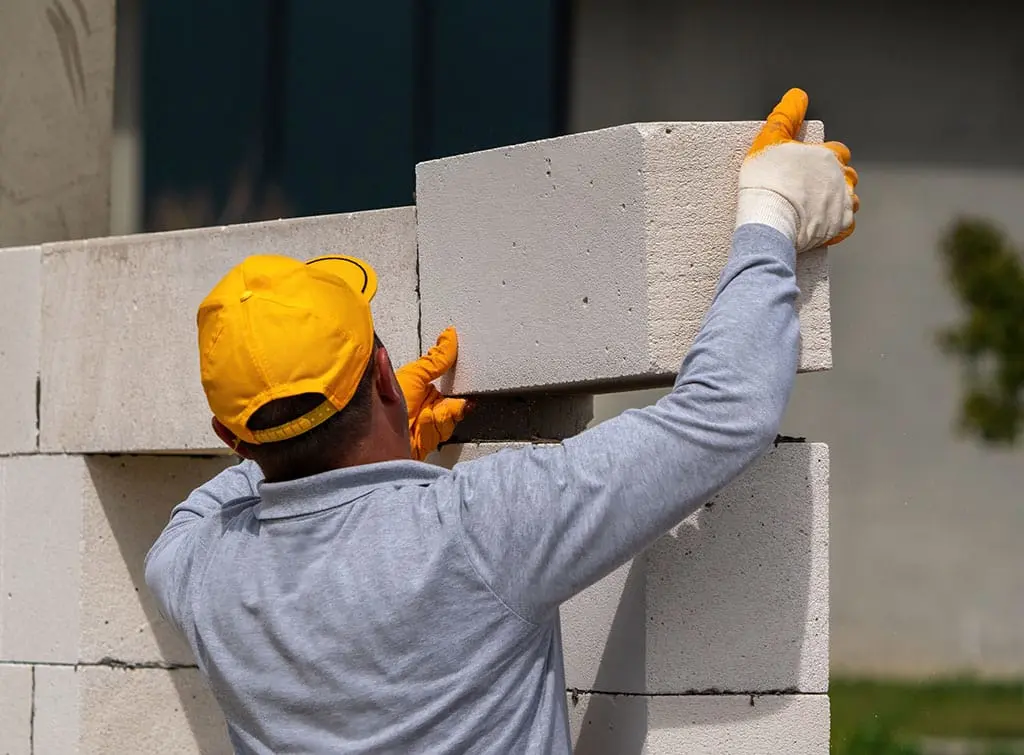
How to get more experience as a bricklayer
Once you’ve successfully completed your bricklaying training, the best way to gain experience is through direct work. This means finding a job where you can put your skills into practice.
Some ideas of where to begin:
Hands-on apprenticeships
Volunteering for community projects
Asking supervisors on building sites
Trying out DIY projects (such as brick-built barbeques)
Helping out with friends or family
Also, it never hurts to get further qualifications**. You could consider advanced bricklaying courses**. This may also open up possibilities for gaining more experience.
Where should you apply for bricklaying roles?
Bricklaying roles can be found in each and every part of the country, making applying for roles simple.
You can inquire with local construction companies about potential vacancies or browse directories in your area.
Naturally, you should also be looking at job sites online, all of which list numerous bricklaying roles currently available.
If you're looking for roles, don't forget to check that the salaries are fair.
How much do bricklayers earn?
What is the average salary for UK bricklayers? How much does a bricklayer earn? Qualified and experienced bricklayers should expect to earn a decent salary for their hard work. Whether you're just starting out as an apprentice, experienced bricklayer, or you're running your own company, it's
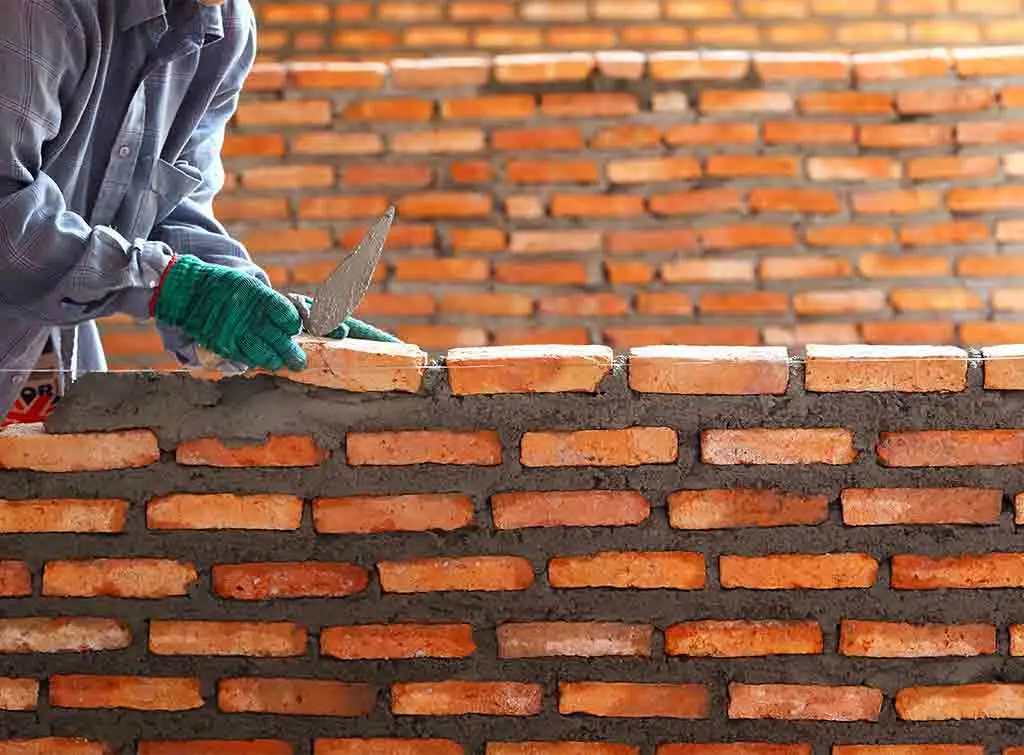
Get more bricklaying work with Checkatrade
With that out of the way, you should now know everything important about how to become a bricklayer.
But if you want even more help finding bricklaying work, then why not join Checkatrade?
You’ll get access to numerous discounts and member benefits
You get your own business profile for reviews details and job photos
We’ll provide you with marketing materials
Enjoy more work coming your way
Your jobs are guaranteed if booked through us (T&Cs apply)
Be trusted by association with a longstanding name like Checkatrade
Fixed membership from Checkatrade means you can expect a certain number of leads throughout the year.
Is a Checkatrade membership worth it?
One way to figure out whether the cost of something is worth it is to look at ROI (Return on Investment). In its most basic sense, this is how much something costs compared with the income it generates. Working out the ROI of a Checkatrade membership is definitely a must-do for any trade business
Bricklaying FAQs
How long does it take to become a bricklayer?
Gaining qualifications will depend on whether you join a college or apprenticeship scheme. Some college courses can take as little as 6 weeks, while most apprenticeships last over a year.
How much do bricklayers earn?
As a job that’s always in demand, bricklayers can earn a decent wage. This is especially true if you specialise or run your own business. Earnings can vary however.
Is bricklaying a good job?
By now, it should be clear just how essential bricklaying can be. It is highly respected by other tradespeople and is absolutely essential for construction projects.
Will I need a CSCS card?
Yes, absolutely! As a bricklayer, you’ll likely be working on construction sites, which means you’ll need a CSCS card to work. Without one, you won’t legally be allowed to perform your role on-site.
Build your business with great savings
Enjoy money off tools and essentials as a Checkatrade member
* Internal search data for users of the Checkatrade.com website between 1st January and 31st December 2024
